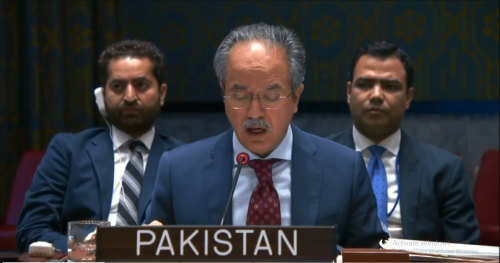ISLAMABAD: The Supreme Court has ruled that national or provincial assemblies cannot make prospective or retrospective laws that are against fundamental rights guaranteed in the Constitution.
The observations came from Justice Syed Mansoor Ali Shah, who was heading a three-judge bench, which heard a set of appeals challenging the amendments made in 2019 to Section 65B of the Income Tax Ordinance (ITO), 2001.
In the judgement, Justice Shah wrote that Article 8 of the Constitution restricted the legislative powers of parliament and provincial assemblies by stopping them from making any law that affects the constitutional rights of people. Neither parliament nor the provincial assemblies could exercise their legislative powers in a manner prohibited by this article.
The prohibition also applies equally to both prospective and retrospective laws, Justice Shah explained.
Up until the budget of 2019, the ITO provision granted a tax credit of 10 per cent to industries that bought and installed new machinery between July 1, 2010 and June 20, 2021.
However, amendments introduced in the Finance Act, 2019 changed the ending year from 2021 to 2019 and reduced the rate of tax credit from 10pc to 5pc.
A number of companies challenged the amendment in the Sindh High Court, which in a February 2023 order, struck down the provision reducing the tax credit to 5pc. The decision was challenged by the Inland Revenue commissioner in the Supreme Court.
The judge noted that the reduction in the rate of tax credit was a “violation of the prohibition against discrimination”. It was also against Article 25 which stated that all citizens are “equal before law and are entitled to equal protection of law”.
Outlining the reasons for this observation, Justice Shah said the companies which purchased and installed the machinery by June 30, 2019 were “discriminate” against by the provision to cut the tax credit rate to 5pc.
“[They have] not been afforded the equal treatment that was given to other taxpayer companies for the tax years 2010 to 2018.”
The judgement noted that courts generally give leverage to the state in matters of fiscal legislation, however, in light of the Supreme Court’s past orders, this leeway is “not infinitely elastic” and fiscal legislation was not entirely beyond the scope of Article 25.
The bench turned the petitions into appeals and partially upheld the SHC decision to set aside the provision to cut the tax credit rate.
However, the high court’s interpretation of the amendment made to subsection (2) — changing the years from 2021 to 2019 — has been set aside.
Published in Dawn, September 21st, 2024















































